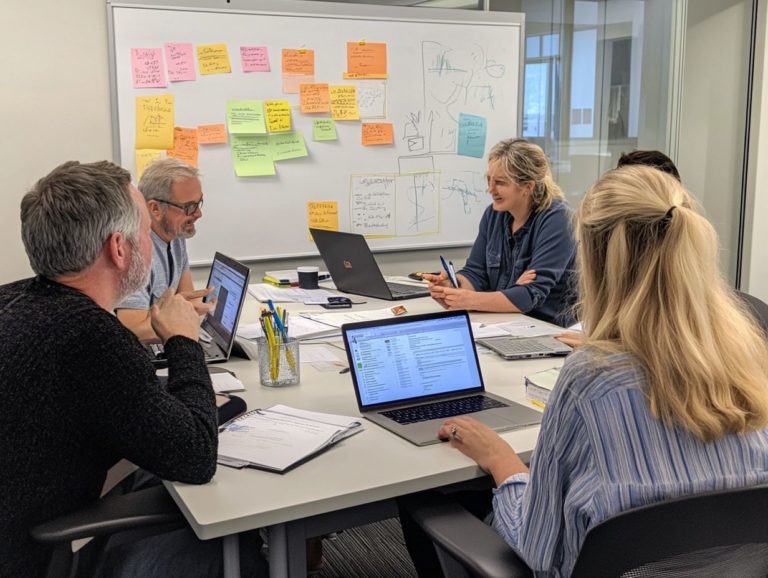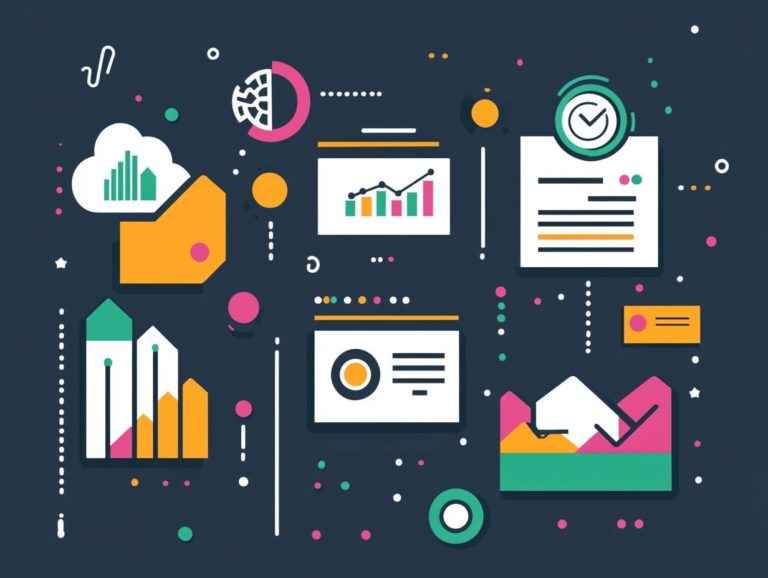77. The Impact of CRM on Sales in Hospitality
In the fast-paced world of hospitality, building meaningful relationships with your guests is essential for success.
Customer Relationship Management, or CRM, systems have become crucial tools that streamline operations and drive sales growth.
This article explores the key advantages of implementing CRM in the hospitality industry.
You’ll discover best practices for effective CRM use and solutions to common challenges, giving you the tools to elevate your hospitality sales game.
Jump in now to discover how CRM can dramatically transform your customer engagement!
Contents
- Key Takeaways:
- The Role of CRM in Hospitality Sales
- Understanding CRM in the Hospitality Industry
- How CRM Improves Sales in Hospitality
- Best Practices for Using CRM in Hospitality Sales
- Challenges and Solutions for Implementing CRM in Hospitality
- Frequently Asked Questions
- What is CRM and how does it impact sales in the hospitality industry?
- How Does CRM Help Improve Customer Satisfaction in the Hospitality Industry?
- Can CRM Be Used in All Types of Businesses Within the Hospitality Industry?
- What Are Some Examples of How CRM Can Increase Sales in the Hospitality Industry?
- Are There Any Challenges or Limitations to Implementing CRM in the Hospitality Industry?
- What Are Some Best Practices for Implementing CRM in the Hospitality Industry?
Key Takeaways:
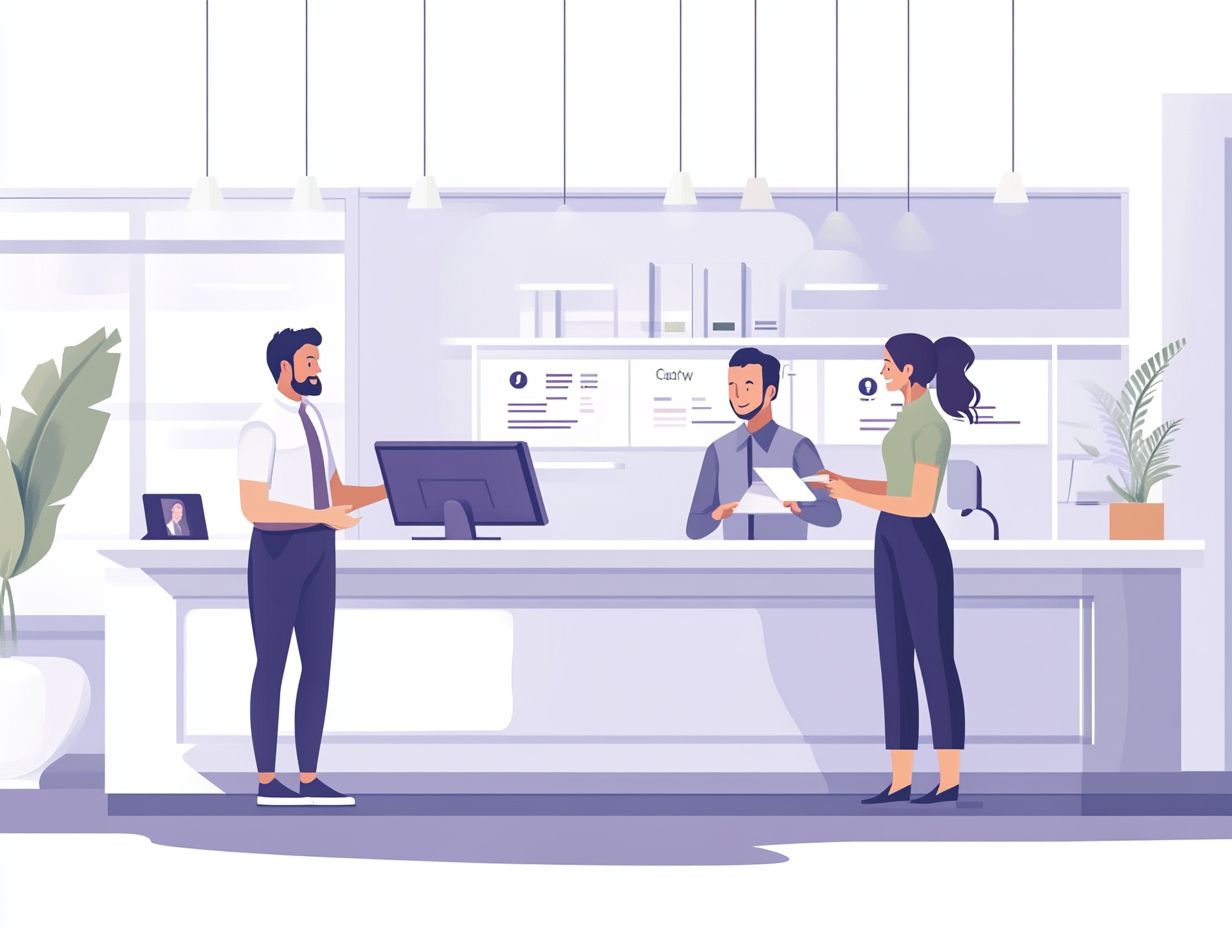
CRM is essential in hospitality for increasing customer retention and loyalty, leading to improved sales. By streamlining sales processes, implementing CRM in your restaurant allows for better organization and communication with customers.
Successful CRM implementation requires effective strategies and readiness to overcome challenges like data management and integration.
The Role of CRM in Hospitality Sales
CRM transforms guest interactions and creates personalized experiences that meet changing customer expectations.
In a landscape shaped by the pandemic and market dynamics, adopting effective CRM systems is vital to stay competitive.
Hospitality CRM solutions enhance customer loyalty by using data insights and crafting tailored marketing strategies.
Prioritizing CRM is key to building loyal customers and managing operations efficiently.
Benefits of Implementing CRM
Implementing a strong CRM system in hospitality offers numerous benefits, including improved customer loyalty through personalized marketing.
Managing guest feedback and service quality can lead to higher satisfaction and retention, ultimately driving revenue growth.
Advanced customer segmentation gives you the power to tailor offerings and communications to meet specific customer needs.
CRM tools streamline operations and provide insights to refine marketing strategies. Hotels using targeted CRM campaigns have seen a remarkable 30% increase in repeat bookings.
By leveraging guest profiles and behaviors, you can create promotions that resonate with specific demographics, enhancing the guest experience and loyalty.
Effective lead capture techniques enhance these CRM systems, nurturing potential guests throughout the booking process and boosting conversion rates.
Understanding CRM in the Hospitality Industry
Understanding CRM in hospitality highlights its crucial role in hotel management through property management systems.
CRM systems provide tools for data analysis, enabling hotels to manage guest interactions and personalize experiences effectively.
By leveraging technology and integrating communication channels, you can stay ahead of market changes and evolving customer preferences.
Key Features and Functions
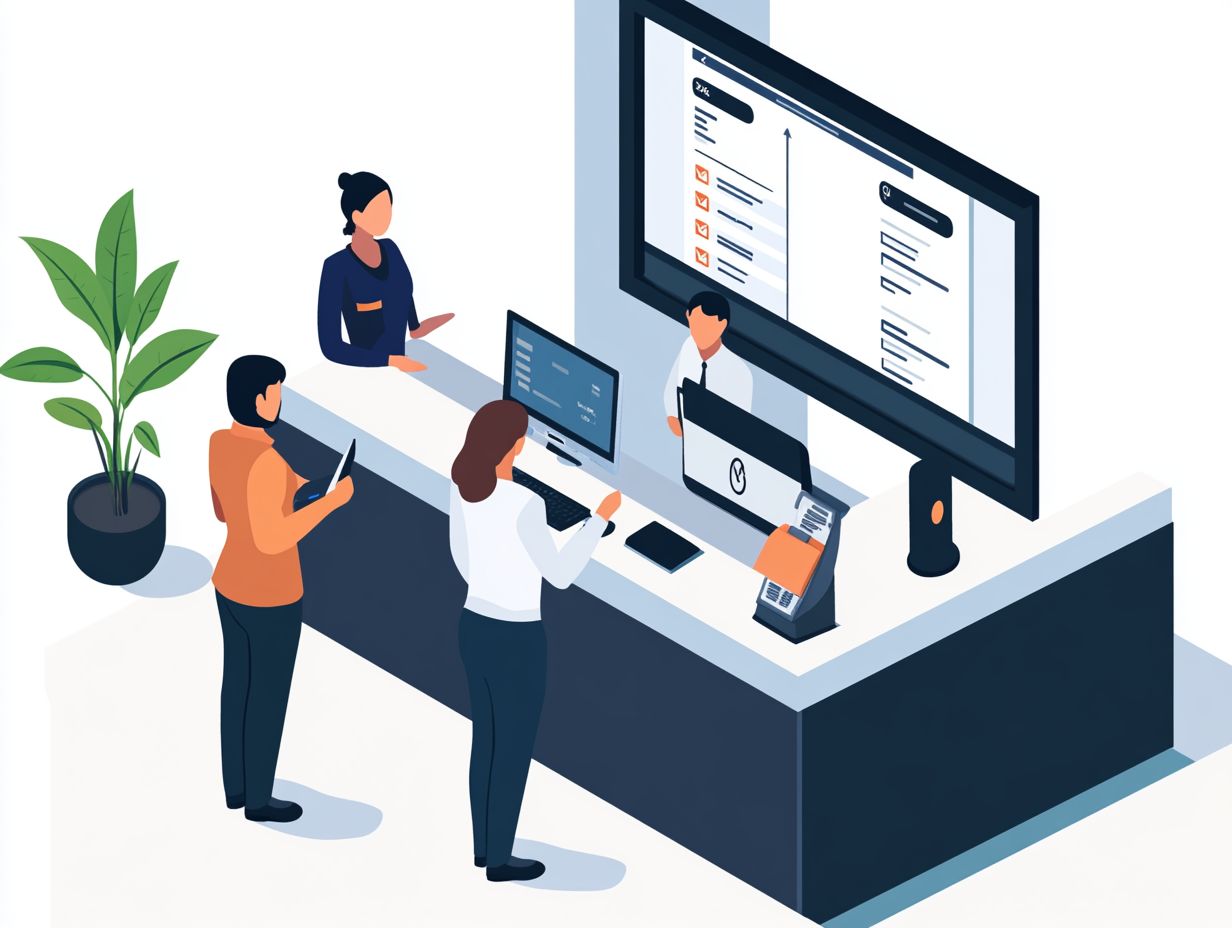
Key features and functions of hospitality CRM systems offer you advanced customer engagement capabilities, automation tools that streamline booking workflows, and robust data security measures to protect sensitive guest information.
These systems provide different ways to communicate, ensuring seamless interaction between your hotel staff and guests. By leveraging these features, you can enhance operational efficiency and create a more personalized experience for your customers.
The customer engagement tools often include targeted marketing features that deliver personalized offers. This allows you to reach out to guests based on their preferences and past behavior.
Automation in booking workflows simplifies the reservation process, enabling immediate confirmations and reducing the risk of errors.
Strong data security protocols safeguard sensitive information, reassuring guests of their privacy paramount in today’s digital age.
Effective communication channels like live chat, email, and social messaging enhance interactions, providing instant support and improving overall service quality. This, in turn, fosters a loyal customer base.
How CRM Improves Sales in Hospitality
CRM dramatically enhances sales in the hospitality sector by elevating hotel revenue through improved customer retention and optimized sales processes, as outlined in how CRM supports marketing in the travel industry.
Using real-time data lets hotels analyze guest behavior and preferences. This data-driven approach boosts sales and enriches guest experiences, keeping hotels competitive in a constantly evolving market landscape.
Increased Customer Retention and Loyalty
Increased customer retention and loyalty are crucial outcomes of effective CRM implementation in the hospitality industry. Tailored loyalty programs elevate your guest experience.
By cultivating strong relationships with your guests and honing in on service improvements, you can craft unforgettable stays that encourage repeat visits and generate positive referrals.
With CRM systems, you can communicate directly with loyal customers, rewarding them for their loyalty and driving sustained engagement.
Today’s travelers want more than just a place to sleep; they prefer personalized experiences that convey their value. Companies that invest in comprehensive loyalty programs witness remarkable increases in guest retention rates.
For example, one hotel chain saw a 25% increase in repeat bookings after starting a CRM-driven rewards program.
Personalization rooted in data analytics and customer insights gives you the power to anticipate guest needs, ensuring that each visit feels uniquely tailored. This deepens the emotional connection between your guests and your brand, heightening client satisfaction and paving the way for even greater loyalty.
Streamlined Sales Processes
Streamlining sales processes in hospitality becomes effortless when you implement automation tools designed to simplify booking workflows and elevate customer engagement.
By integrating these tools into your operations, you can significantly reduce administrative burdens and enhance the financial viability of your sales strategies.
This newfound efficiency gives you the power to focus on delivering exceptional service while simultaneously boosting conversion rates and overall sales performance.
As a result, these CRM systems revolutionize the way you manage relationships with guests, allowing for a more personalized experience.
Automation tools adeptly handle routine tasks like follow-ups and reservation confirmations, ensuring timely communications that resonate with your customers.
This proactive approach not only enhances engagement but also fosters loyalty, making your guests more likely to return.
By leveraging automation now, you can significantly boost your operational effectiveness, leading to a healthier bottom line and sustainable growth in an increasingly competitive market.
Best Practices for Using CRM in Hospitality Sales
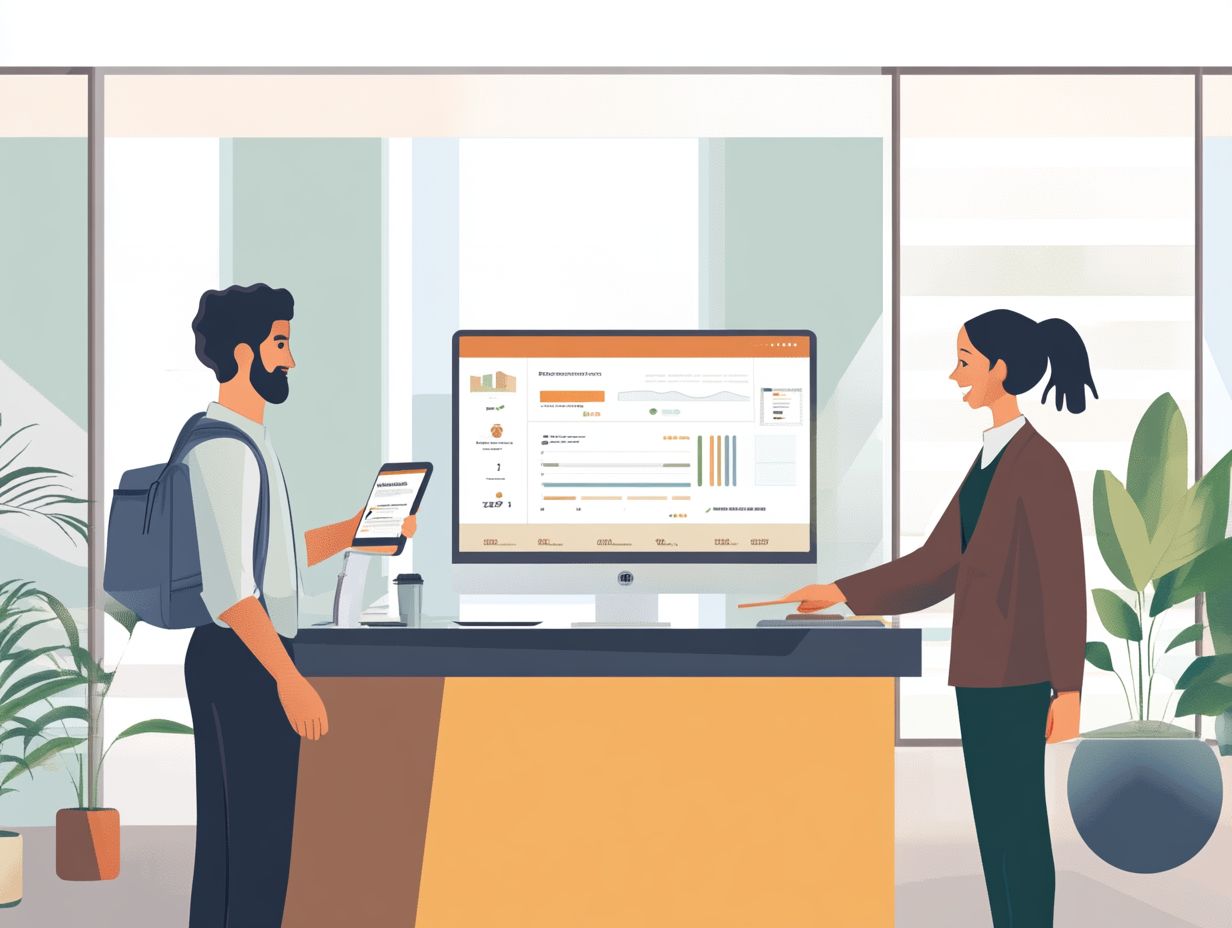
Discover how to revolutionize your hospitality sales with effective CRM strategies! Best practices for using CRM in hospitality sales focus on smart strategies, including those outlined in the benefits of CRM in the fitness industry. These strategies use customer segmentation and insights based on data to improve your marketing efforts.
Understanding your guests’ preferences helps you customize your offers. This connection boosts engagement and increases conversion rates.
Embracing these practices gives your hospitality business the power to remain agile and competitive in an ever-evolving marketplace.
Effective Strategies for Utilizing CRM
Effective strategies for utilizing CRM in hospitality involve leveraging marketing automation and enhancing client management. Actively seeking guest feedback also elevates service quality.
By integrating these approaches, you create a responsive environment that adapts to customer needs and preferences. This active approach cultivates loyalty and drives continuous improvement across all facets of hotel operations.
Implementing marketing automation allows you to send personalized promotions and communications to your guests. This ensures that your marketing efforts are timely and relevant.
When paired with robust client management techniques like maintaining detailed profiles of guest preferences and past interactions you can anticipate needs and exceed expectations effortlessly.
Gathering and analyzing guest feedback through surveys and online reviews offers invaluable insights into potential service gaps. This information gives you the power to make informed, data-driven decisions, enhancing the overall guest experience and leading to higher satisfaction rates.
Challenges and Solutions for Implementing CRM in Hospitality
Implementing CRM in the hospitality sector presents unique challenges, including issues like data security and effective employee management, especially in the wake of pandemic recovery. Don t let common obstacles hold you back!
As hotels navigate these new market realities, tackling these challenges becomes essential. Focus on strong training programs and data protection to overcome these challenges and maximize your CRM.
Common Obstacles and How to Overcome Them
You may encounter common obstacles when implementing CRM systems in the hospitality industry, such as employee retention issues and the need to adapt to market changes. These challenges can significantly impact customer engagement and service delivery.
To navigate these hurdles successfully, prioritize employee training and retention strategies that align with your CRM objectives. Embracing hotel technology that facilitates agile responses to market dynamics will enable you to maintain high standards of customer engagement and service.
Fostering a positive workplace culture is crucial for keeping your staff motivated and engaged. Equip employees with the right tools and knowledge to utilize CRM systems effectively.
Regular workshops and ongoing support instill confidence in your team, allowing them to navigate market changes with ease. Incorporating feedback mechanisms enables you to make necessary adjustments, enhancing service delivery and the overall guest experience.
Ultimately, striking the right balance between technology, training, and employee satisfaction will empower your hospitality enterprise to thrive in a competitive landscape.
Frequently Asked Questions
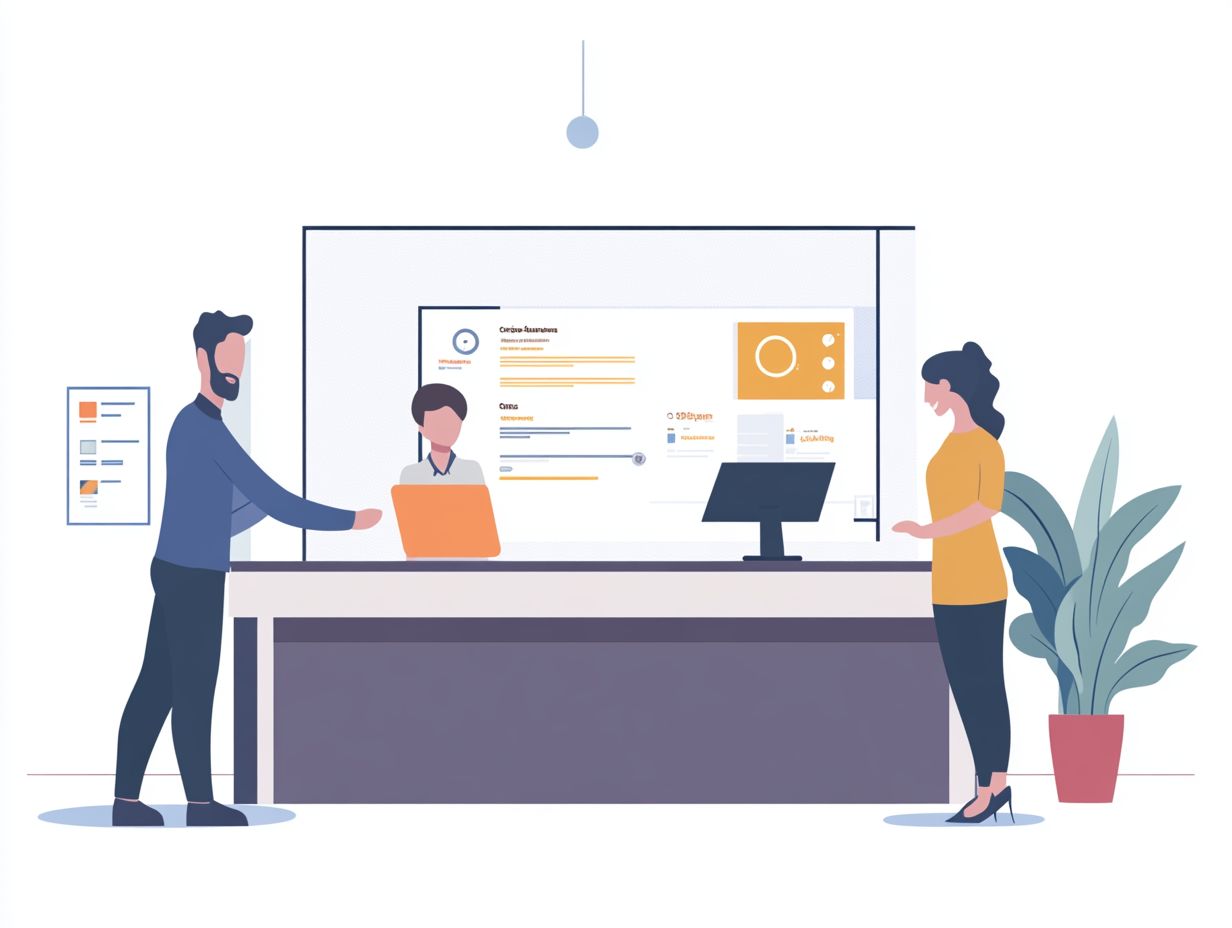
What is CRM and how does it impact sales in the hospitality industry?
CRM means Customer Relationship Management. It helps businesses manage how they interact with their customers. In the hospitality industry, the importance of CRM in customer service can significantly impact sales by providing personalized experiences, targeted marketing, and effective customer retention strategies.
How Does CRM Help Improve Customer Satisfaction in the Hospitality Industry?
Customer Relationship Management (CRM) helps businesses collect and analyze customer data. This allows for personalized experiences and targeted marketing, leading to better satisfaction.
Can CRM Be Used in All Types of Businesses Within the Hospitality Industry?
Absolutely! CRM is beneficial for hotels, restaurants, event venues, and travel agencies. Any business that interacts with customers can gain from a CRM strategy.
What Are Some Examples of How CRM Can Increase Sales in the Hospitality Industry?
CRM increases sales by identifying potential customers and providing personalized offers. It improves the overall customer experience and aids in retention through effective communication.
Are There Any Challenges or Limitations to Implementing CRM in the Hospitality Industry?
Implementing CRM does come with challenges. These include the costs of systems, training staff, and ensuring customer data remains secure and compliant with privacy laws.
What Are Some Best Practices for Implementing CRM in the Hospitality Industry?
Define clear goals for your CRM strategy. Choose the right system, train your staff properly, and regularly review customer data for informed decisions.

